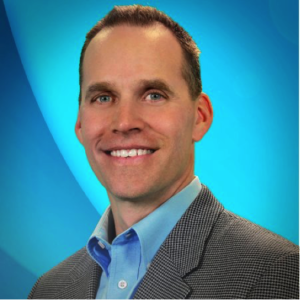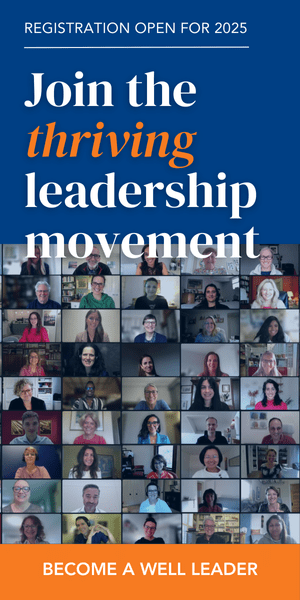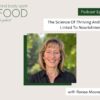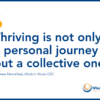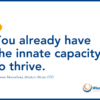During this time of year it’s interesting to look back and consider not just how the year went but also to remember your roots and how they’ve shaped you. I was reminded of this after a conversation with this week’s Face of Wellbeing Leadership Larry McEvoy, MD. Larry is a senior physician executive, healthcare strategist, and social entrepreneur currently leading Practicing Excellence, a firm focused on enhancing physician effectiveness. He grew up in the wide-open spaces of Montana where his parents wanted the family to be “closer to planet earth.“
“My dad was a doctor so I spent a lot of time growing up in nursing homes and hospitals on holidays, being with people who were alone. I got used to connecting to people and to the community as a whole. In fact, connecting land and people and community was something that was way back in my history without my ever thinking about it. Probably my earliest awareness as a kid was how good it felt to be part of a community.”
That urge to be wholeheartedly part of something bigger, and to give back as his father did, spurred Larry to go to medical school. A major illness he dealt with also got him thinking about not just giving back, but helping patients understand what wellbeing looks like—even after surgery.
“I got sick in medical school and was a patient for a long time. So I got really interested in what it was like to look at wellness and illness from both sides of the bed,” he says. “I also got interested in the massive hospital gaps for helping people get better. People at the hospital would grab me and say, ‘Hey, this guy has to go through this trauma that you went through, so will you talk to them ahead of time? Because you’ve done it and you’re a medical person. They’ll listen to you.’”
Having been through a major health crisis, Larry could identify with patients and tell them what doctors or nurses typically don’t tell you. “It’s not that they don’t care,” Larry says, “It’s just not on their radar.” Educating people about what’s healthy in different circumstances is essential, he says. “It’s one thing to be healthy and well when you’re 23 years old and weigh 190 pounds and can play basketball and run all day. And another thing to be healthy and well when you’re 10 days post-op, and it’s going to be 6 months before you can be physically active again. You can be healthy and well in either situation if you know what to do.” For example, he says, after surgeries, the sooner a patient is up moving, their nutrition is better and they are connecting with relationships that matter to them, the sooner their psyche is better overall. A connection to nature also helps: “We now know that if someone has a window to the outdoors – even a window that simulates the outside – wellbeing and recovery benefit,” he says.
A World of Interconnected Wellbeing
Larry’s family taught him how wellbeing and survival aren’t idiosyncratic in individuals—it’s the way the world works. “In the nursing homes I was around, I would see one patient who made it and one who didn’t. They seemed to have the same prognosis, yet one lived and one died. I’d wonder: what was the thing that made the difference between them? And then in November I’d be outside with my Dad, freezing cold at the Missouri River, and a thousand geese would be going over us nonstop, traveling 600 miles with no digital navigation gear. And my dad would say, ‘There it is again. This thing.’”
As Larry became a physician, he got more and more conscious of what this ‘thing’ was about: life force, essential to wellbeing no matter what phase of life you’re in. And he noticed how the loss of it was so damaging. “At first I thought people either had it or they didn’t. But then I started to realize that you can grow it or shrink it, you can protect it or hurt it. It all comes down to the life you choose to live, the communities you choose to take part in, and the interconnectedness you feel with everything around you,” he says.
One piece of the fascinating work Larry is doing right now is coaching doctors to help them actually cultivate or support the larger sense of wellbeing—their own and their patients’. It’s a challenge, he says, because medicine has become a pressurized world driven by internal and external influences that have caused a fracture in the medical community and in the psyches of health professionals. “In health care what’s needed is leadership that encourages people to perform at a higher level going forward than they did before. That will come by helping them tap into deeper level of their wellbeing.”
READ MORE
- The Art of Convening: Do You & Your Team Have Space to Transform?
- Joe Sibilia on Championing Sustainability
- How Brands Can Lead Wellbeing

